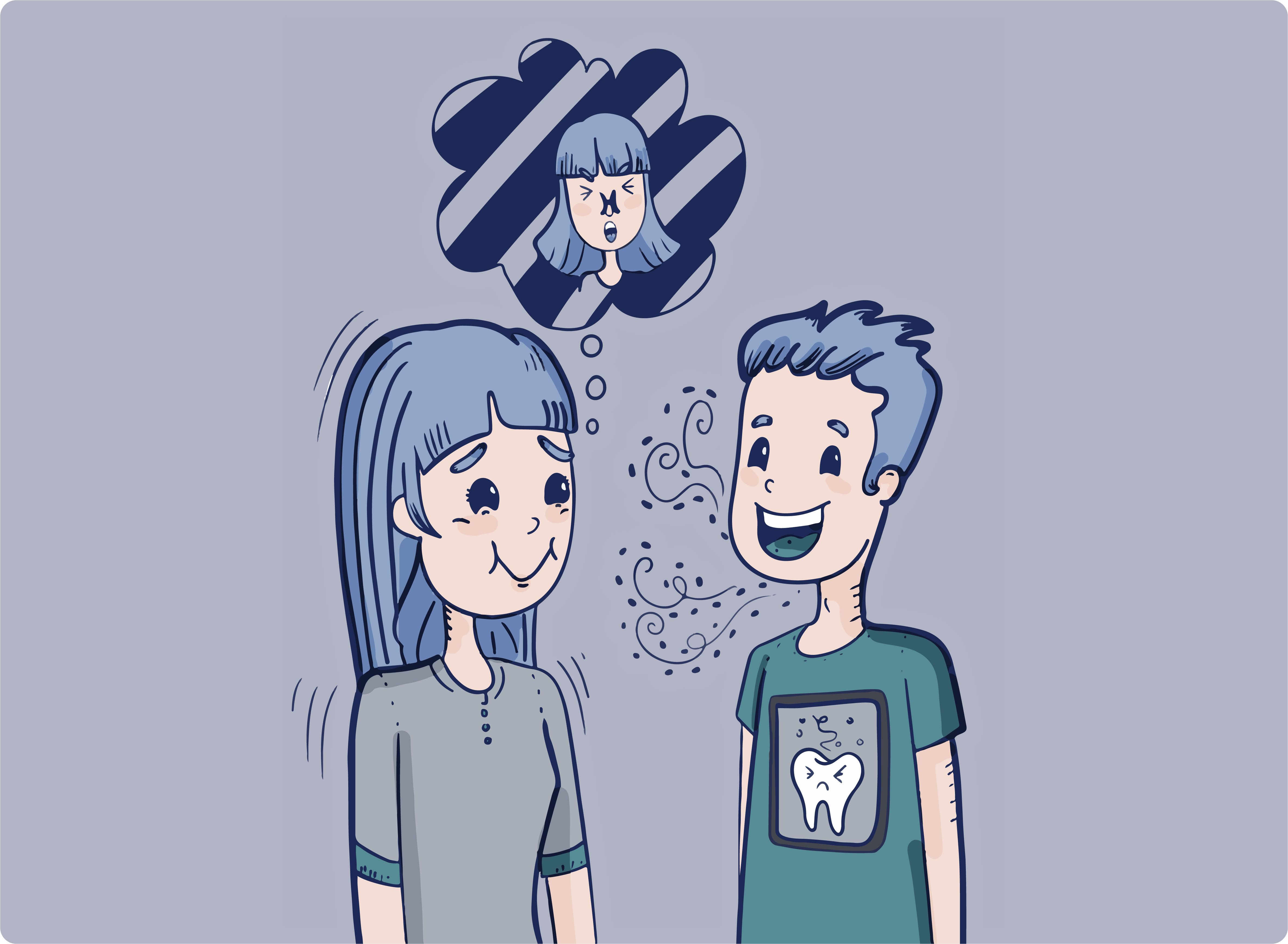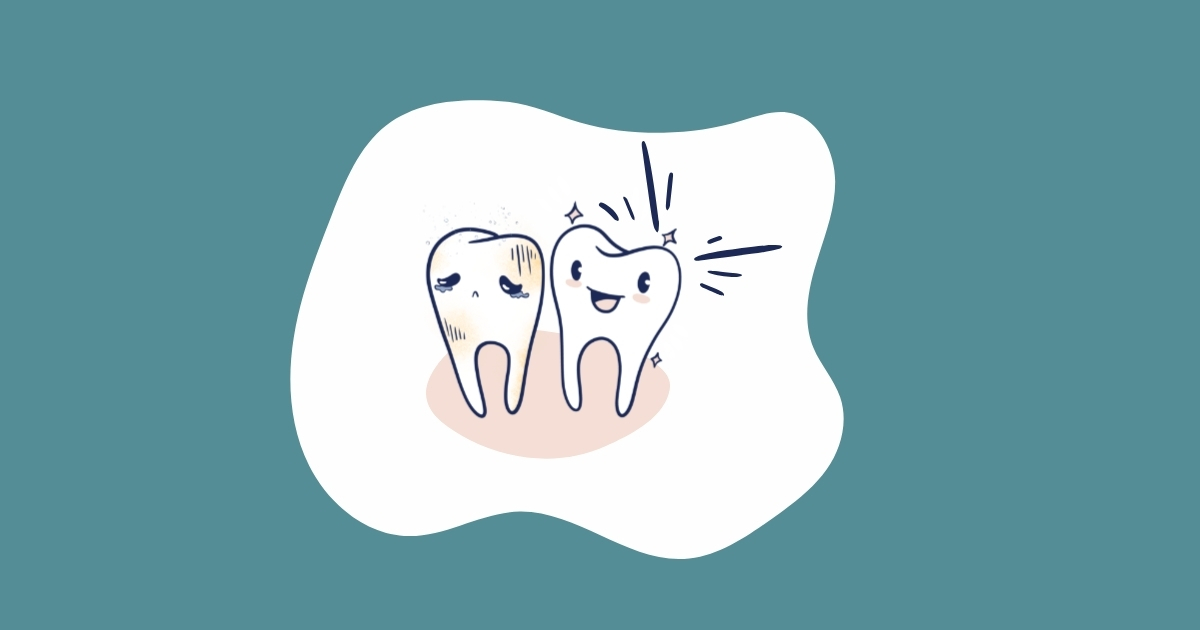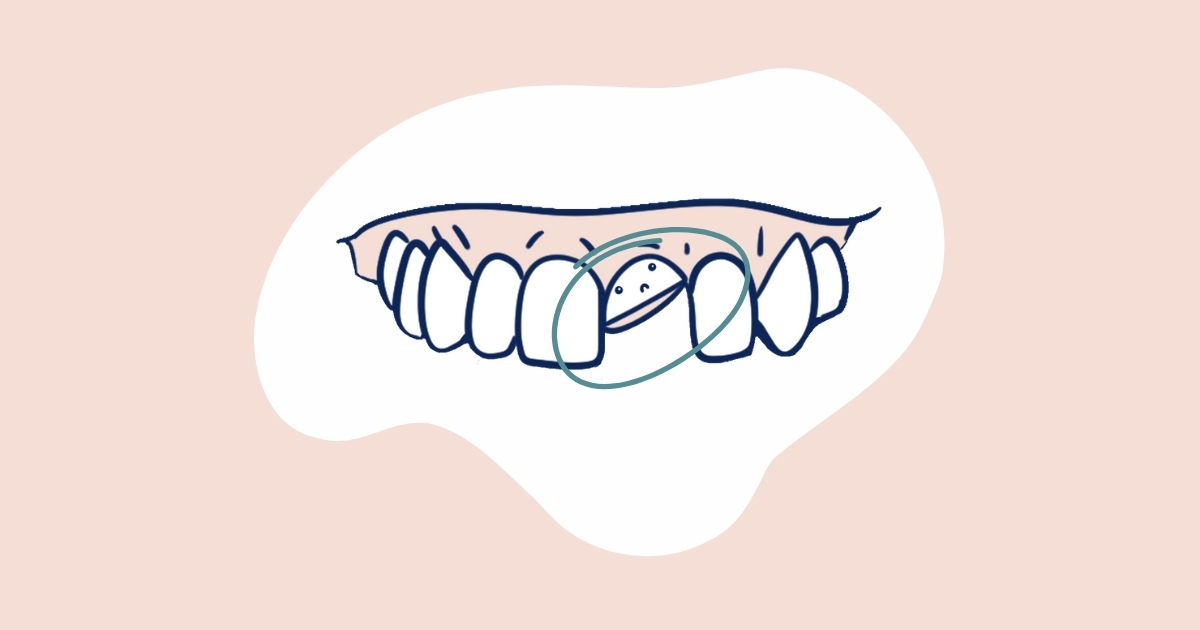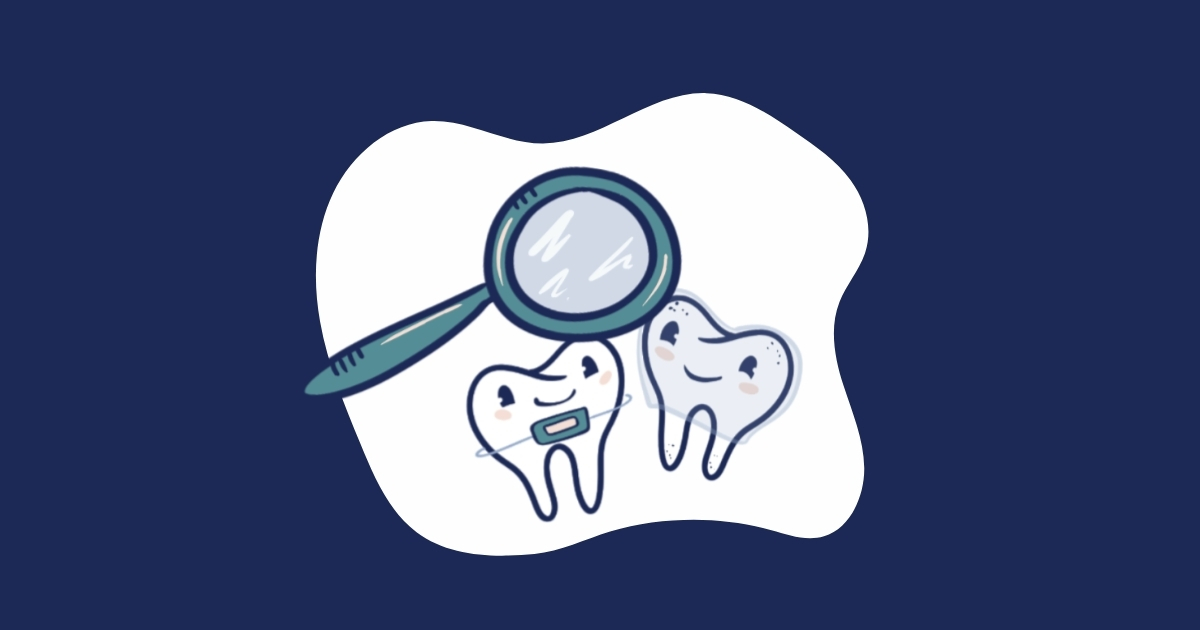“Oh wow, I have the worst breath right now!"
It happens to the best of us. Bad breath, aka halitosis, can be a temporary issue caused by eating pungent foods like onions and garlic. It may also be caused by drinking coffee, tea, and sugary beverages that zap the moisture from your mouth. Or, it may be a more chronic issue related to certain medications or medical conditions that cause persistent dry mouth.
In any case, the main stinky breath culprit is bacteria. It’s always in your mouth, but when it’s given a chance to hang out and multiply, the trouble starts. Onions and garlic release sulfur compounds when chewed—when they latch on to bacteria, the odor increases. Drinks or medications that cause dry mouth prevent saliva from flowing and remineralizing your teeth. That means bacteria build up faster, allowing the bad breath to flourish.
Bad breath can also be a sign of periodontal disease. Inflammation and bone loss around your teeth from periodontal disease create deep pockets at the gumline where more bacteria can hide.
Whether your bad breath issues are occasional or persistent, here are some tips that can help you maintain a clean mouth and fresh breath every day!
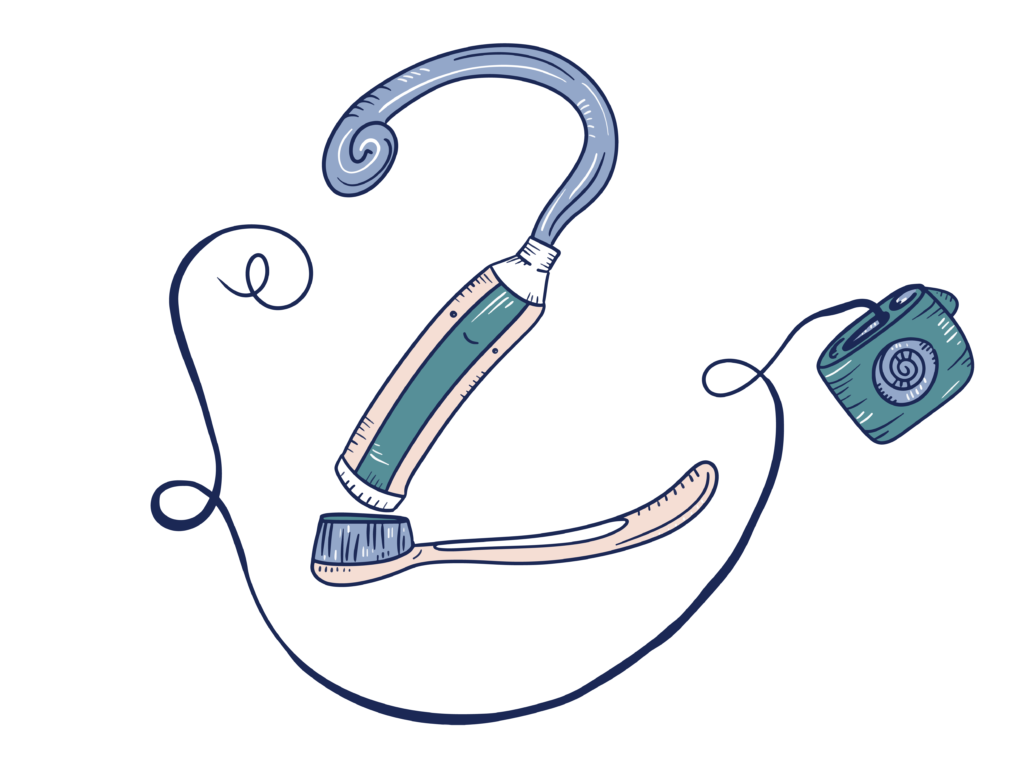
Brush and Floss Daily
We know—we recommend brushing and flossing daily to help with every oral health issue. Why? Because it works!
Flossing helps extract the bacteria-attracting food particles that get stuck between your teeth. Twice daily brushing with fluoride toothpaste helps sweep bacteria away while remineralizing your teeth to prevent plaque build-up. Plus, your favorite toothpaste provides an extra burst of flavor!
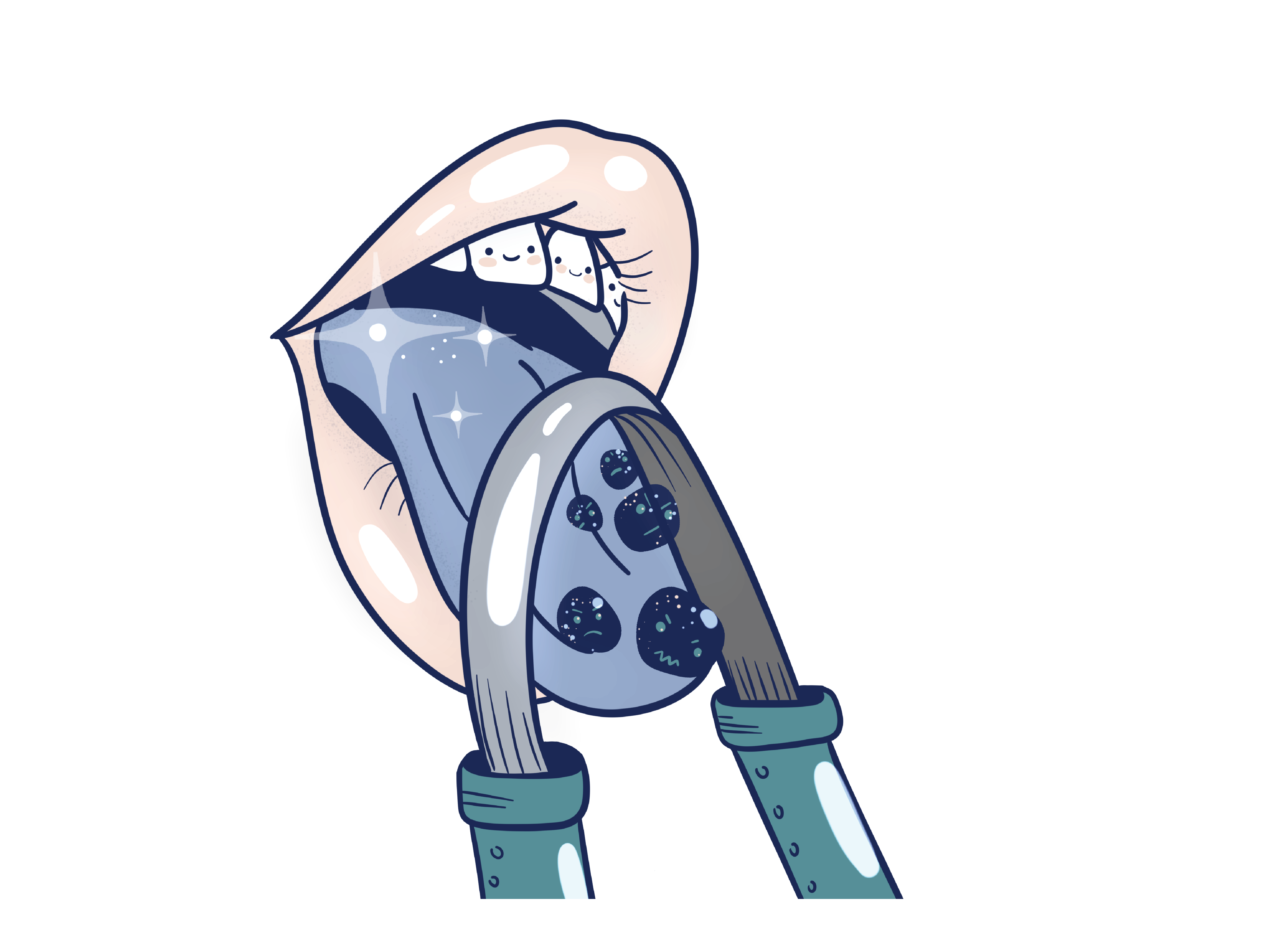
Scrape Your Tongue Daily
Bacteria love warm, moist environments, especially when they can hide in bumps and craters like the ones on your tongue. Scraping or brushing your tongue helps loosen and remove bacteria, food particles, and debris that might otherwise stay lodged in the tissue.
Using a tongue scraping tool is generally more effective than using your toothbrush. Scrapers are available in various shapes, sizes, and materials (usually plastic or metal).

Rinse With Mouthwash
The regular use of therapeutic mouthwash can help control bad breath. Active ingredients like cetylpyridinium chloride, chlorhexidine, and essential oils can help regulate bacteria while protecting against plaque buildup and gingivitis. Mouthwash is also beneficial because it can reach the areas in your mouth and between your teeth that even thorough brushing and flossing might miss.
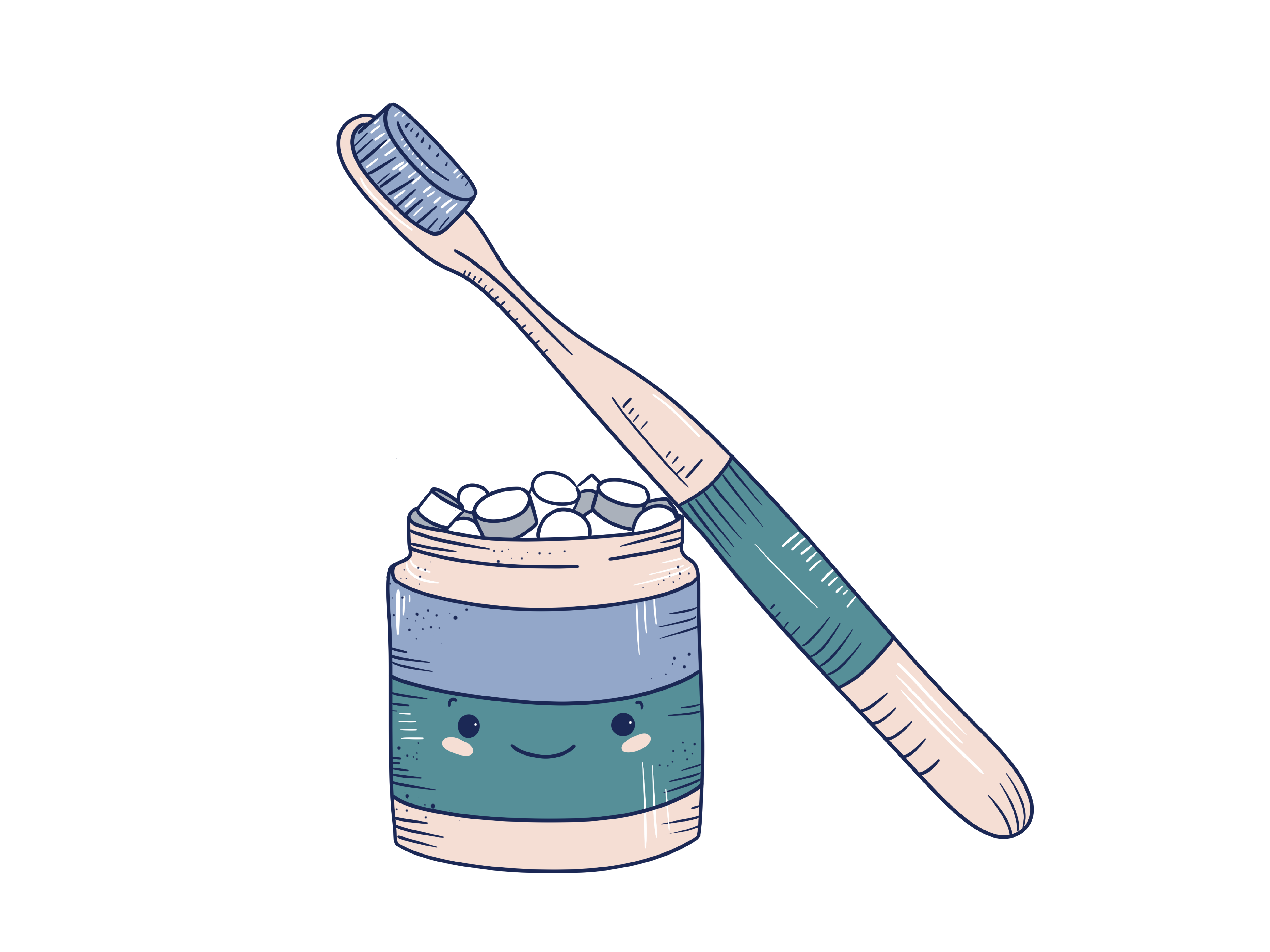
Use Zinc and Xylitol Mints
Zinc is a natural bacteria zapper that you may not be getting enough of. Mints or lozenges with added zinc may help fight off bacteria while helping you produce additional saliva.
Mints or gum with xylitol, a natural plant-based sugar alcohol, reduce decay and stinky breath-causing bacteria. Any mints or gum you choose should be sugar-free, as products containing sugar will feed your mouth bacteria and make your bad breath worse with repeated use. However, be sure to keep any products containing xylitol away from your dog friends—even small amounts can be toxic.
Bad breath can be a temporary, easy to eliminate inconvenience, or it might be a sign of a deeper issue. If you notice a change in the odor of your breath, talk to your dentist. She can identify the cause and offer a solution. At Bass Dentistry, we’re happy to answer any questions you have about maintaining fresh breath and a healthy smile. Contact us to book an appointment today!
Healthy Gums,
Healthy Life
If dental health is important to you and your family, take steps to know how to keep your gums healthy. Gum health is essential to maintaining healthy teeth and overall good dental hygiene. Brush and floss multiple times per day, avoid tobacco products, and use a therapeutic mouthwash.
If you want to know more about maintaining a healthy smile, book an appointment today with Bass Dentistry.

